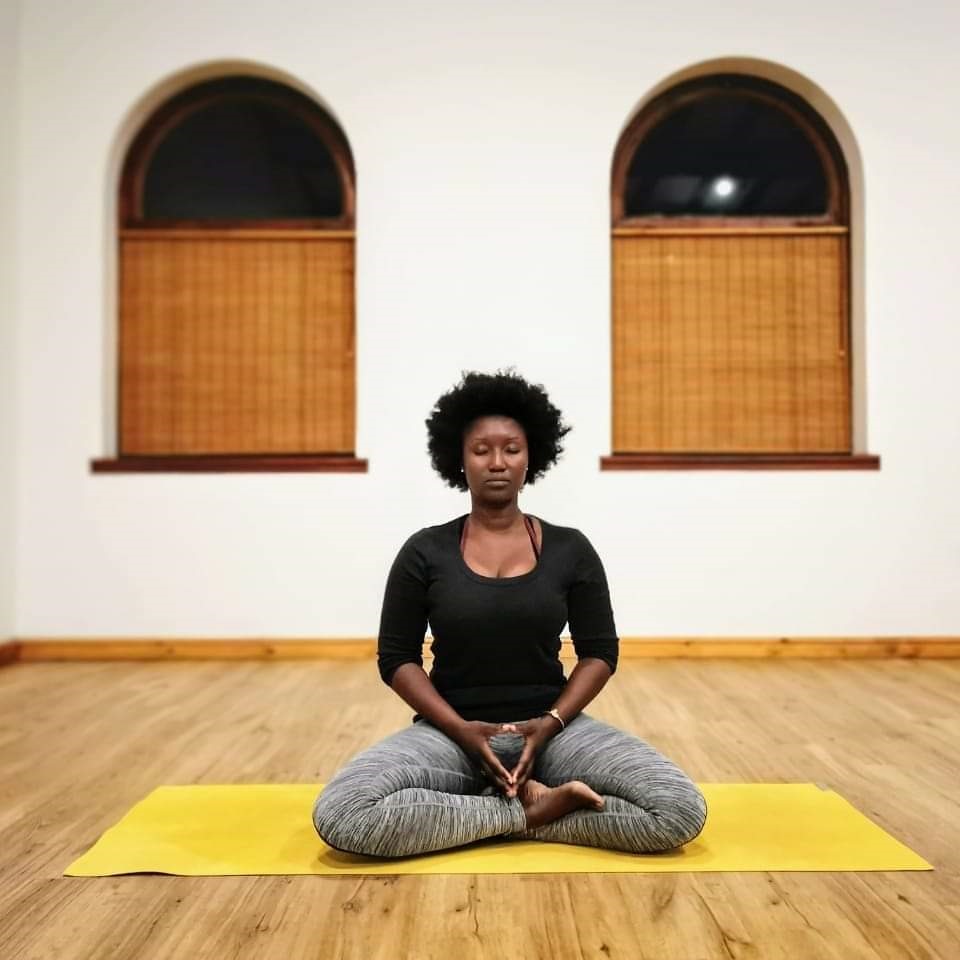
It is easy to find yourself winding down a dark spiral of panic with the spread of Covid-19 and its implications in our lives. Welcome Lishivha shares ways we can cultivate mental habits that keep us afloat in times of uncertainty.
Anxiety over the spread of the Covid-19 coronavirus had me frantic and almost unable to breathe in a near panic attack, for a moment thinking I had the virus.
I went to the nearest clinic before the lockdown, where the screening test suggested I was okay and that, if anything, I had endangered myself by travelling there.
I could feel my body getting better with the deep sighs of relief I gasped as I made my way back home to stay put.
The anxiety about my future, family, friends and our nation are still hard to shake off as the virus spreads and halts our lives with lockdown measures.
It’s easy to wallow, but this is the time to practise compassion towards ourselves and to remember to breathe regularly, says yogi and healer at Holding Space, Kafui Awoonor.
“When your body isn’t getting enough oxygen,” she says, “it is likely to not feel well, and for the oxygen to penetrate and go into every single cell in every part of your body, you need breath.”
She suggests five long and deep breaths every now and then to control our stress levels.
Uncertain future implications of the coronavirus are fertile ground for anxiety to thrive.
But according to the head of general hospital psychiatry, senior lecturer and principal specialist at the University of Cape Town’s department of psychiatry and mental health, Dr Qhama Cossie, anxiety is a perfectly normal response to something that’s unexpected and unpredictable.
“As a psychiatrist, I’d be worried if people weren’t anxious about what’s going on. We should only worry about anxiety,” he continues, “when it becomes excessive and prevents us from performing daily functions and fulfilling roles like work, feeding children, taking care of yourself, being unable to socialise with others and struggling to sleep.”
For those whose incomes, jobs or health are on the line, sleep and getting your mind off things can seem like a luxury when solutions seem nowhere in sight.
This is more reason to establish good sleeping patterns that will help stabilise our emotions, says Cossie. “Don’t binge on Netflix and sleep at 4am, for example,” he adds. “Make sure to get your eight hours of sleep.”
When you reach out to family and friends to share with them your struggle with anxiety, you will feel less alone and less anxious, as you discover that anxiety is a normal and shared experience at such times.
Unfortunately, many of us haven’t cultivated a culture of being in touch with our emotions because we grew up without ever learning that emotion is an essential and necessary part of the human experience.
Instead, we consider it a weakness and suppress it.
Awoonor suggests using the lockdown period to reflect on our emotional patterns and stop using work, relationships, alcohol, parties, sex and food as suppressants for whatever it is that we don’t want to deal with.
Many of us “are yet to learn that whatever we are going through is okay, we don’t have to run from it, it is not permanent and, if we learn how to be with whatever is happening, we will learn healthy coping mechanisms and not try to escape our emotions.”
In addition to turning the tide on numbing emotion, we need to overcome the stigma against asking for help.
“We are taught that we ought to help people, but somehow we’re also conditioned to think that it’s not okay for us to ask for help.
Instead of using the 21 days of the lockdown to feel alienated, anxious and sad, we should rather try to focus on boosting our mental wellbeing for what lies ahead, and this will include asking for help. If someone messages you and asks how you are doing, say when you are not okay.”
“If you live alone, this could be a lonely time, but the upside of that is that you have your entire space to yourself,” she says.
Family and friends can be helpful to those who are struggling with mental illness and are alone at this time by ensuring regular communication and check-ins.
“Sometimes you don’t have to see a person to communicate with them. If you pray, pray for that person. If you meditate, meditate and send love to that person.
“Send a little message every day, or a video of yourself doing a silly dance. You might not get the reaction immediately, but trust that it affects them to know that there are people out there who care,” says Awoonor.
It’s also just as important for families to allow everyone space to be alone, to avoid blowing steam off each other.
And as for those hoping to use this time to build a business and complete projects, Awoonor suggests that you take the time out to do nothing, get some rest and learn mindfulness.
“Even if we’re not allowed to do much outside our yards, you must still do something to move around,” says Cossie on the importance of exercise.
“Put on your favourite song and dance, or clean your house. You’ll be surprised how decluttering and moving around the house can entail a lot of moving,” adds Awoonor.
If you need help or someone to talk you through your anxiety, reach out to the SA Depression and Anxiety Group on 0800 456 789.
Women and children at risk of abuse can call the Gender-Based Violence Command Centre on 0800 150 150 for police assistance.
And if your anxiety is so severe that you find yourself needing medical treatment, remember that health services are essential and remain open during the lockdown
- Lishivha will host another mental wellbeingcheck-in with Awoonor on Tuesday, April 7, live on the Bare Stories Facebook page




 Publications
Publications
 Partners
Partners










